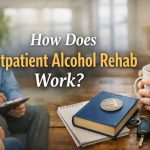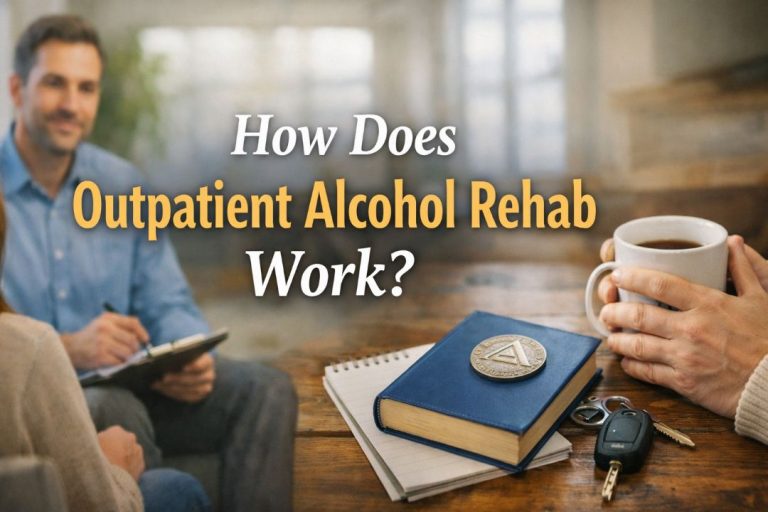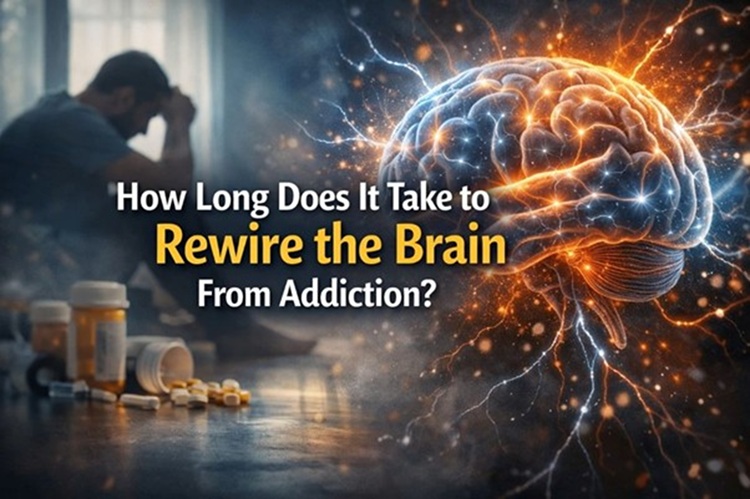More advanced health problems dominate the third stage of alcoholism, which is the chronic or late stage of alcoholism. By this time, the body has suffered the chronic results of alcoholism, which is incurable and the damage to such vital organs as the liver, heart, and brain, and the psychological line and behavioural problems are highly disrupted.
This blog will deconstruct the phases of alcoholism, outline the symptoms of late-stage alcohol use disorder (AUD), and provide an idea of treatment and recovery methods. Whether it is you or one of your loved ones, in case of indicators of progressive alcohol abuse, early diagnosis is the first step in avoiding life-threatening consequences.
What are the 4 Stages of Alcoholism?
Alcoholism is clinically known as Alcohol Use Disorder (AUD) and it develops with time. The four major stages allow one to determine the position a person can be on the scale of alcohol addiction:
Pre-Alcoholic Stage
Alcohol consumption is regularly only to alleviate stress or social anxiety problems and there is no noticeable addiction behavior.
Early-Stage Alcoholism
Raising tolerance and frequent blackouts. The drinker starts to be more dependent on alcohol.
Middle-Stage Alcoholism
Physical addiction presents itself. Without drinking, the withdrawal symptoms commence, and the relationships or obligations are compromised.
Chronic (Late-Stage) Alcoholism
This is when grave health conditions arise. Excessive exposure to alcohol results in the breakdown of the body and medical complications can be severe.
What Happens in the Late Stage of Alcoholism?
The body and the brain have suffered a lot due to the effects of alcohol at this stage. People can hardly live without alcohol and they may undergo such experiences:
- Damage of the liver (cirrhosis, fatty liver and hepatitis)
- Cardiovascular diseases: cardiovascular degeneration (cardiomyopathy), hypertension, arrhythmia, Heart problems
- Changes in the brain (loss of memory, confusion, Wernicke-Korsakoff syndrome)
- A suppressed immune system and cause increased difficulty in combating infections
- Problems with the gastrointestinal tract: ulcers, bleeding, or pancreatitis
- The mental health disorders, which include depression, anxiety, and suicidal thoughts
Withdrawal during this stage can be hazardous and it might be necessary that withdrawal is medically based and monitored.
What are the Symptoms of Late-Stage Alcoholism?
To get an idea of whether one has already gone through the thresholds of serious health risks due to alcohol consumption, just be on the lookout for the following signs:
- Every day or near-constant drinking
- Tremors when not taking alcohol
- Unhealthy hygiene and nutrition
- Fluid retention, or enlargement of the liver, or jaundice (yellowing of the skin/eyes)
- Mood swings or aggression or isolating
- Deterioration in mental or memory power
They are warning signs that the individual is not just an addict but also is exposed to life-threatening physical and mental harm by alcohol.
How Long Does it Take to Reach Late-Stage Alcoholism?
It depends on individual people based on:
- Genetic predisposition
- intensity and quantity of alcohol taken in
- Age and general health
- The mental state of health
A heavier drinker, who drinks over years or decades, is, however, more prone to the development of chronic alcoholism. It can be prevented by early identification and treatment before long-term damage arises.
Can You Reverse the Health Problems Caused by Alcohol?
Some damages can be reversed, and there are some permanent damages. For example:
- The inflammation of the liver (fatty liver) may frequently improve under abstinence.
- However, liver cirrhosis is irreversible and might involve a transplant.
- The function of the brain can be partially restored, but again, this depends on the extent and length of misuse of alcohol.
- The symptoms of mental health usually decrease drastically using this treatment.
The prompt treatment has the highest opportunity of recovery and prevention of further complications.

How is Late-Stage Alcoholism Treated?
Chronic alcoholism may be thought of as an application of the medical, psychological and societal interventions, which may involve the following:
- Medical detox of alcohol
- The structured type of 24-hour rehabilitation: inpatient rehabilitation
- The treatment of individuals and groups through the assistance of such techniques as CBT or DBT
- Natural treatment and cravings coupled with the use of medicine (MAT)
- The second area of continuing care (AA or SMART Recovery)
Treatment with professionals is required at this stage. Without treatment, alcoholism is fatal at such a late stage.
What Causes Someone to Develop Chronic Alcoholism?
Some causes of the development of late-stage alcoholism are as follows:
- Genetics and family history
- Mental illnesses such as depression, PTSD and anxiety
- Trauma or stress
- Social surroundings and peer pressure
- Binge drinking or accessibility of alcohol at early age
It can be treated by getting an insight of the underlying causes
Who is at Risk of Developing Serious Health Problems from Alcohol?
Risk exists for anyone who drinks in excess over time; however, some groups run a higher risk:
- Those who have relatives with an addiction background
- Individuals having underlying mental health issues
- Binge drinkers at an adult level
- Individuals who start drinking at an early age
Lifestyle changes can prevent and overcome the risk as long as it is identified early enough.
When Should You Seek Help for Alcoholism?
When the use of alcohol:
- Passion to affect your well-being
- Being able to interfere with your job, academic life, or relationship with your life partner
- Legal or financial pest
- Memory outage, or risk-taking caused by it
- It is out of time when seeking professional help.
You are still not in the late stage, but early treatment will help you preserve your health, relations and future.

Get Help Today at Orlando Treatment Solutions
Alcohol does not have to be a hardship, and one does not have to go through it alone. Orlando Treatment Solutions offers compassionate, evidence-based treatment to those suffering from alcoholism at each stage, including chronic or late-stage alcoholism.
Our medical personnel will be standing by to assist you in overcoming an addiction crisis through medical detoxification, inpatient support, or provide around-the-clock care until you can be able to live the life that you deserve once again.
It is our path to recovery. Make an appointment or call us (321) 415-3213 now.
Health looked after is your business. Act now and do not postpone until the situation gets even more serious. Use the assistance that you do deserve today.
Frequently Asked Questions (FAQs)
Q1: What are the signs of late-stage alcoholism?
Late-stage alcoholism signs include severe liver damage, memory loss, mood swings, withdrawal symptoms, malnutrition, organ failure, and neglect of responsibilities. Individuals may experience blackouts, tremors, hallucinations, and alcohol dependence.
Q2: Can liver damage from alcohol be reversed?
Early-stage liver damage from alcohol, like fatty liver, is often reversible with complete abstinence and a healthy lifestyle. However, advanced liver damage such as cirrhosis may be permanent but manageable. Medical intervention and alcohol cessation are key to improving liver function and preventing further alcohol-related health complications.
Q3: What mental health issues arise in chronic alcoholism?
Chronic alcoholism often leads to depression, anxiety, memory loss, psychosis, and alcohol-induced dementia. Long-term alcohol abuse disrupts brain chemistry, increasing the risk of co-occurring disorders. Treating both alcoholism and mental health conditions simultaneously through dual diagnosis care significantly improves recovery outcomes and long-term mental well-being.
Q4: How long does it take to reach the chronic stage of alcoholism?
Reaching the chronic stage of alcoholism typically takes several years of heavy, prolonged drinking. Factors like genetics, environment, mental health, and drinking patterns influence the progression. Early intervention and alcohol addiction treatment can prevent long-term damage and reduce the risk of developing chronic alcohol use disorder.
Q5: Is recovery possible from late-stage alcoholism?
Yes, recovery from late-stage alcoholism is possible with comprehensive treatment. Medical detox, behavioral therapy, support groups, and long-term rehabilitation can help individuals regain health and sobriety. Though physical damage may persist, many people recover mentally and emotionally with the right alcohol addiction treatment and ongoing support.



























